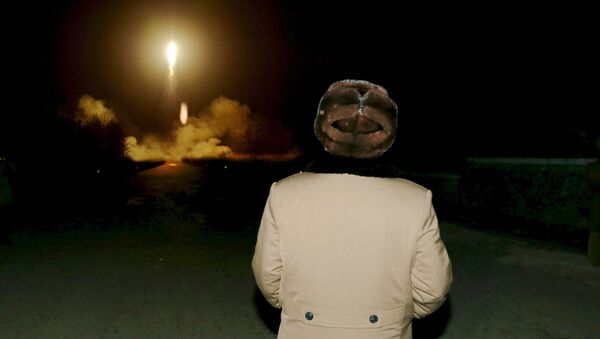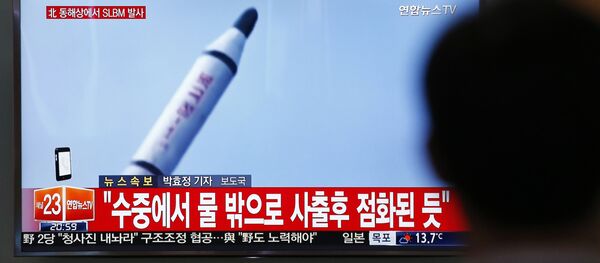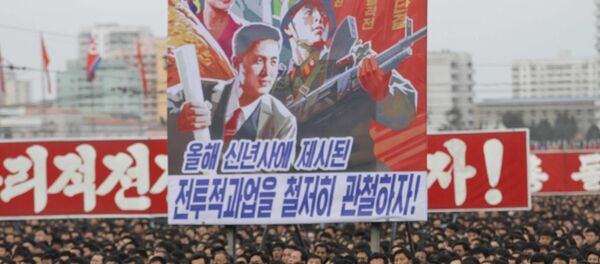This political prediction comes hours after acting South Korean President Hwang Kyo-ahn spoke with US President Donald Trump over the phone discussing ways that Seoul could protect itself from Pyongyang’s nuclear threats, namely deploying the Terminal High Altitude Area Defense (THAAD) system.
According to a White House statement, "President Trump reiterated our ironclad commitment to defend (South Korea), including through the provision of extended deterrence, using the full range of military capabilities."
Angered by ongoing joint military drills between Seoul and Washington in South Korea’s Pyeongchang area, DPRK’s Kim warned of retaliation for what he called "madcap mid-winter"drills during his New Year’s address, claiming that the North was close to completing a ballistic missile capable of carrying a nuclear warhead.
North Korea's Minju Joson newspaper said that if South Korea provoked conflict with the North, "the revolutionary forces of the DPRK will wipe out the aggressors to the last man by fully displaying their tremendous might."
Yonhap News Agency quoted a South Korean defense ministry official commenting "There are no signs of an imminent test firing of an intercontinental ballistic missile (ICBM) by North Korea. But we are closely monitoring any new military activities in the country as it could launch an IRBM at any time if leader Kim Jong Un gives the order."
Last Monday there were reports, both from Washington and Seoul, that Pyongyang had placed two intercontinental ballistic missiles (ICBMs) on mobile launchers, as the isolated country continues to develop nuclear weapons and conduct ballistic missile tests.




